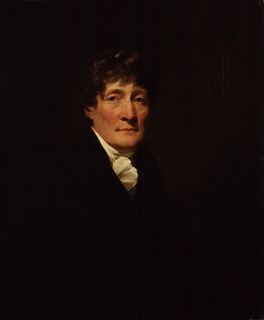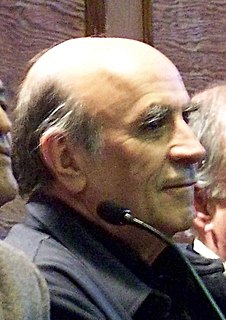A Quote by Harry S. Truman
We all have to recognise - no matter how great our strength - that we must deny ourselves the licence to do always as we please.
Related Quotes
We are rarely able to interact only with folks like ourselves, who think as we do. No matter how much some of us deny this reality and long for the safety and familiarity of sameness, inclusive ways of knowing and living offer us the only true way to emancipate ourselves from the divisions that limit our minds and imaginations.
How do we define, how do we describe, how do we explain and/or understand ourselves? What sort of creatures do we take ourselves to be? What are we? Who are we? Why are we? How do we come to be what or who we are or take ourselves to be? How do we give an account of ourselves? How do we account for ourselves, our actions, interactions, transactions (praxis), our biologic processes? Our specific human existence?
Let us remember, too, that greatness is not always a matter of the scale of one’s life, but of the quality of one’s life. True greatness is not always tied to the scope of our tasks, but to the quality of how we carry out our tasks whatever they are. In that attitude, let us give our time, ourselves, and our talents to the things that really matter now, things which will still matter a thousand years from now.
But how can we love someone if we don't like him? Easy-we do it to ourselves all the time. We don't always have tender, comfortable feelings about ourselves; sometimes we feel foolish, stupid, asinine, or wicked. But we always love ourselves: we always seek our own good. Indeed, we feel dislike toward ourselves, we berate ourselves, precisely because we love ourselves; because we care about our good, we are impatient with our bad.
We must recognise that we have a great inheritance in our possession, which represents the prolonged achievement of the centuries; that there is not one of our simple uncounted rights today for which better men than we are have not died on the scaffold or the battlefield. We have not only a great treasure; we have a great cause. Are we taking every measure within our power to defend that cause?
We leave something of ourselves behind when we leave a place. We stay there even though we go away and there are things in us we can find again only by going back there. We travel to ourselves when we go to a place. We have covered a stretch of our life no matter how brief it may have been but by traveling to ourselves we must confront our own loneliness. And isn’t it so that everything we do is done out of fear of our loneliness? Isn’t that why we renounce all the things we will regret at the end of our life?
If we don't love ourselves, we would not love others. When someone tell you to love others first, and to love others more than ourselves; it is impossible. If you can't love yourselves, you can't love anybody else. Therefore we must gather up our great power so that we know in what ways we are good, what special abilities we have, what wisdom, what kind of talent we have, and how big our love is. When we can recognize our virtues, we can learn how to love others.
We in this country, in this generation, areby destiny rather than choicethe watchmen on the walls of world freedom. We ask, therefore, that we may be worthy of our power and responsibility, that we may exercise our strength with wisdom and restraint, and that we may achieve in our time and for all time the ancient vision of peace on earth, good will toward men. That must always be our goal, and the righteousness of our cause must always underlie our strength. For as was written long ago: except the Lord keep the city, the watchman waketh but in vain.

































